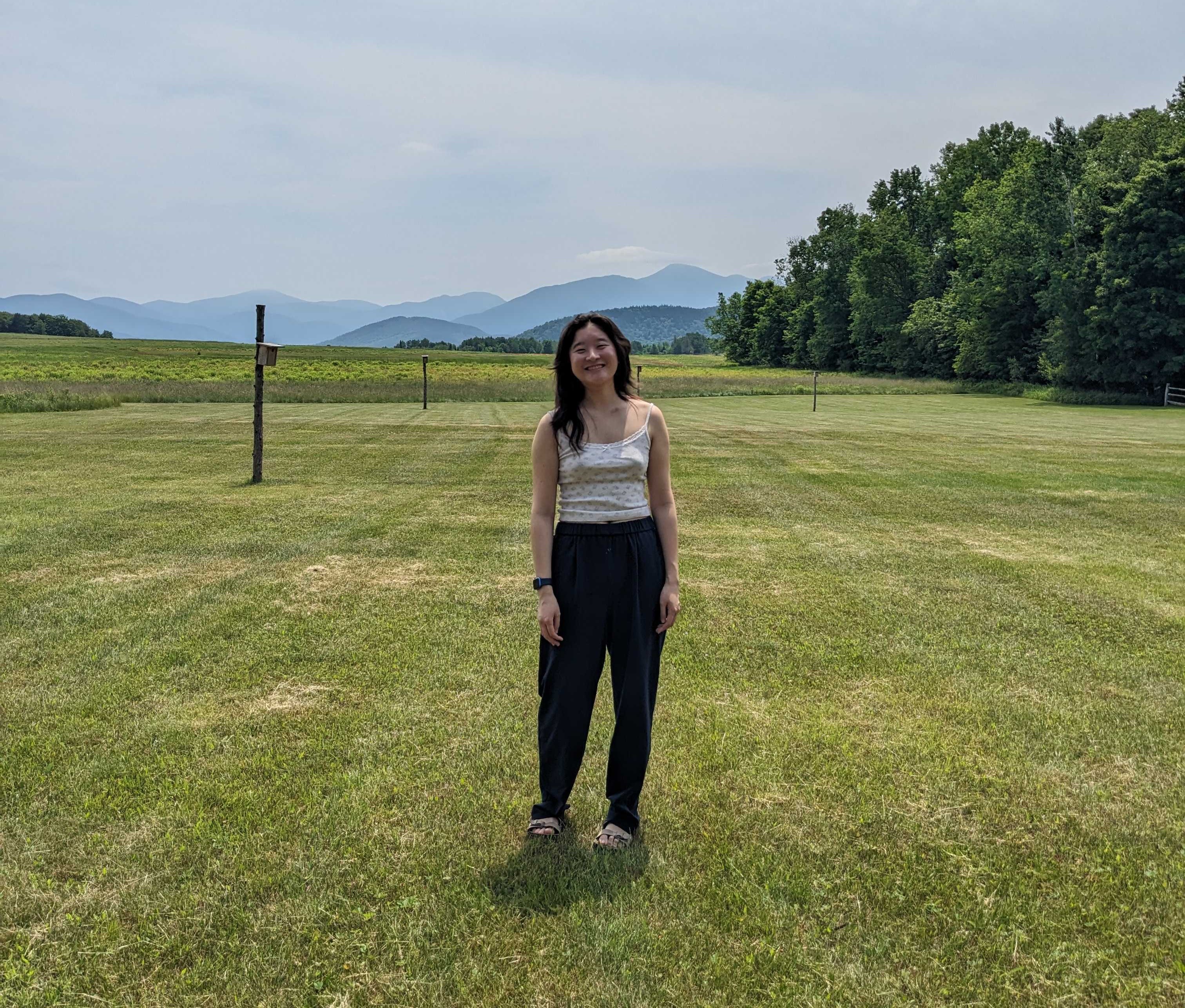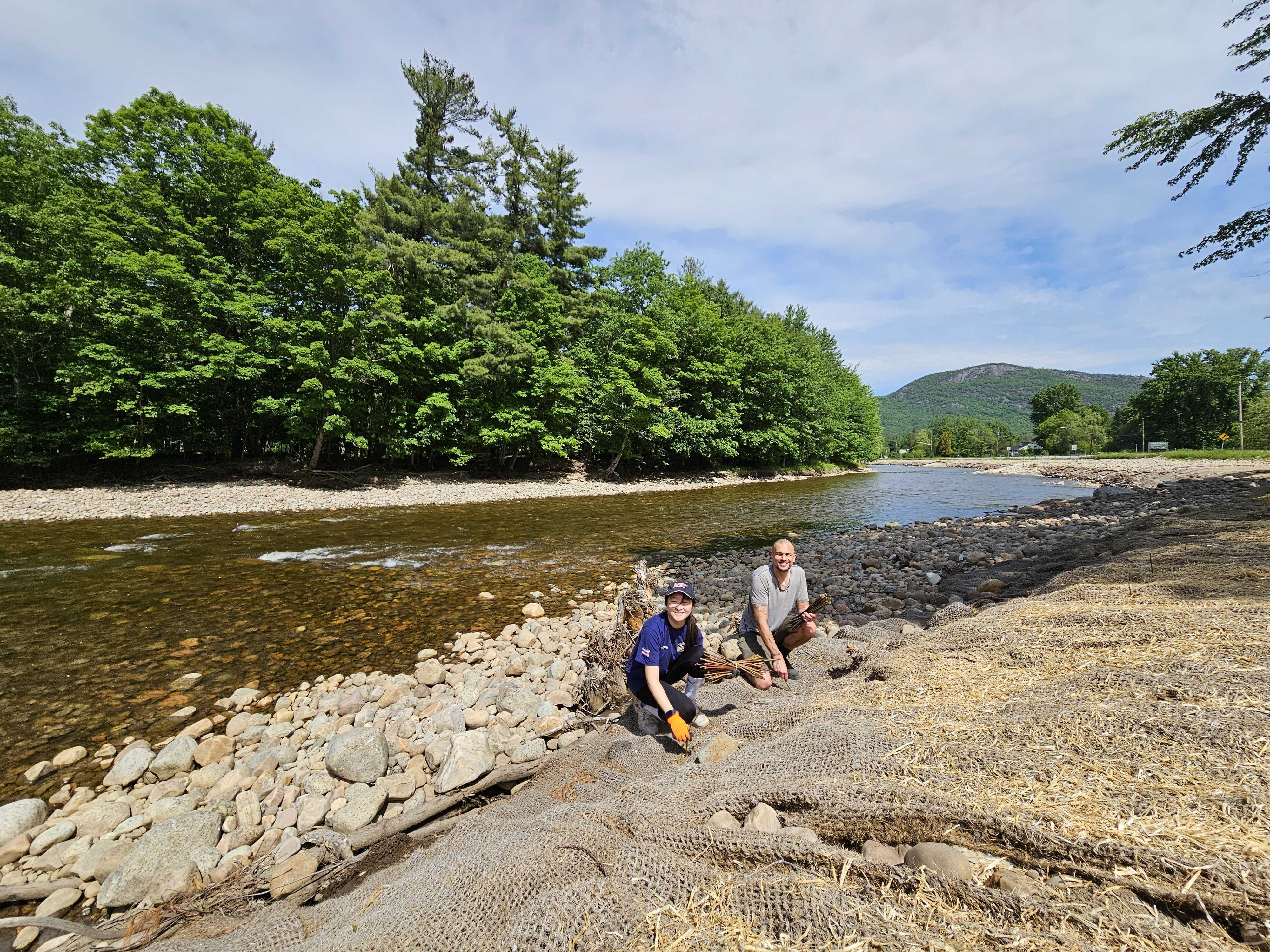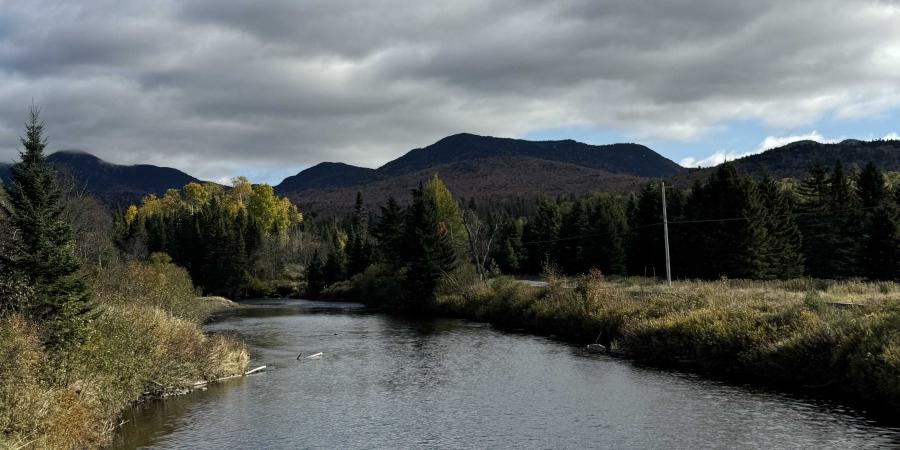Hello! My name is Angie Zhu, Colgate University class of 2026. This past summer, I had the incredible opportunity to work with the Ausable Freshwater Center (AFC) as a Colgate Upstate Institute Field School Fellow. During my time as a fellow, I worked under Phil Snyder, AFC Water Quality Research Manager. Phil taught me the importance of water quality monitoring and the complexities of working for a small non-profit organization.

Here I am enjoying the view at AFC’s lab on the Uihlein Farm in Lake Placid.
Throughout my time at AFC, I worked on data analysis and data visualization focused on AFC’s road salt and water quality work. AFC has measured and monitored 30 sites along the Ausable River and its tributaries for the past nine years. This is a lot of data, and visualizing their work is an important tool for engaging community members and potential donors. As an applied math major and a computer science minor, I utilized my programming skills to produce an animated, interactive map that shows the impact of road salt on measured stream conductivity. This map will help community members gain a holistic understanding of the environmental impact of road salt contamination.

I enjoyed connecting with the community at events like AFC's annual Ride for the River.
But why should we care about road salt? New York is one of the most heavily salted states in the US. In the Adirondacks alone 38 tons of salt are applied per state road lane mile every winter. When temperatures rise and road salt dissolves into melting snow, salt travels into surface waters and groundwater. The Adirondack Park has over 3,000 lakes and 30,000 miles of rivers and streams, and its inhabitants rely heavily upon clean fresh water for consumption, recreation, and flourishing wildlife. Once they are contaminated by road salt, there are detrimental, long-lasting impacts on both human and environmental health. In short, road salt can make water unsafe to drink, damage and corrode infrastructure, and endanger or kill many wildlife species.
Support our water quality work for clean water and healthy streams. Give with confidence today!
In addition to working on my project, I participated in data collection, lab work, and events. I was excited to be involved in the process behind all of the numbers. I enjoyed connecting with local community members through volunteer and fundraising events, and came to understand that change starts with the community.

I didn’t hesitate to get involved at AFC: I assisted with tree plantings during the first week of my fellowship. Working with people who are so passionate about the environment and their impact solidified my desire to work in conservation.
Everyone at AFC was so welcoming and passionate about their work. Because of this experience, I am now even more interested in conservation work. I learned about the many challenges that non-profits face, which only increased my admiration of their work. This was an invaluable experience that helped clarify my future academic and professional goals. Moving forward, I hope to use my programming and mathematical skills to help solve environmental problems.
Finally, I want to give my thanks. I want to thank the Colgate Upstate Institute, for providing me with this incredible opportunity to live and work in the beautiful Adirondack Park. I especially want to thank Phil Snyder, AFC Water Quality Research Manager, for all of his time and support. None of my questions went unanswered and I greatly appreciate the flexibility and understanding he showed me. AFC, thank you for letting me be a part of your mission!
Story written by Angie Zhu, Colgate University class of '26.
Sign-up for our e-newsletter to get weekly updates on the latest stories from the Ausable Freshwater Center.


